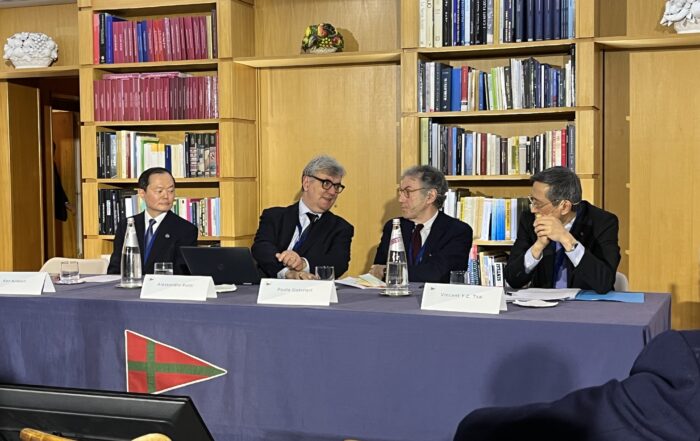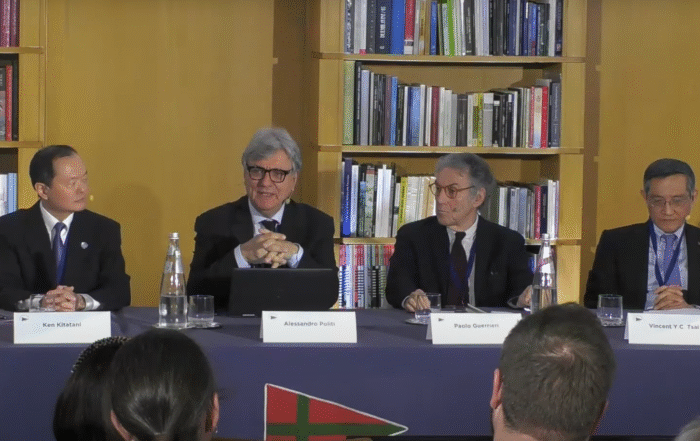On March 3, 2025, the NATO Defence College Foundation (NDCF) hosted a high-level roundtable discussion, bringing together strategic minds to address emerging security and economic challenges across the Indo-Pacific and Euro-Atlantic regions. The event took place against the backdrop of intensifying global tensions. China’s growing influence and its support for Russia’s war in Ukraine have reshaped NATO members’ strategic considerations in the Indo-Pacific, while renewed Transatlantic strains—exacerbated by U.S. President Donald Trump’s re-election and shifting U.S. foreign policy—have called NATO’s unity into question. Against this complex geopolitical landscape, the conference explored the critical intersections of security, economic resilience, and international cooperation across two dynamic panels:
- Panel 1: ‘Soft Security: Forestalling Geopolitical Confrontation’ explored NATO’s evolving cooperative engagements with its four primarily Indo-Pacific partners (Japan, South Korea, Australia, and New Zealand) and the importance of establishing deterrence in the region through soft security, such as technological and strategic capacity-building, rather than only hard security, or military deployments.
- Panel 2: ‘Geoeconomics and Cooperation on Securing Supply Chains’ focused on Euro-Atlantic and Indo-Pacific stakeholders’ shared priorities of safeguarding high-tech industries, maintaining economic resilience, and addressing cybersecurity threats.

Notably, Ken Kitatani, Chief of Executive Board and Committee at the International Council on Environmental Economics and Development (ICEED), participated as a panelist in the second session, exchanging views with prominent figures, such as Taiwan’s representative in Rome, Vincent Y.C. Tsai, and the NDCF’s Director, Alessandro Politi. Kitatani shared ICEED’s perspectives on the critical need for AI-powered threat detection systems to counter the increasing risk that cybersecurity attacks and climate change-induced natural disasters pose to critical infrastructure and global supply chains. His contributions fueled a robust exchange of ideas with other high-level officials, reinforcing the importance of public-private cooperation in securing emerging technologies and ensuring the resilience of the global economy.
Throughout the event, a strong emphasis was placed on maintaining transatlantic unity and forging deeper collaboration between NATO and its Indo-Pacific partners. Participants recognized that economic interdependence between these regions is vital for sustaining security and technological innovation in an increasingly multipolar world of geopolitics. Taiwan’s economic resilience and indispensable role in the global semiconductor supply chain were highlighted as examples of how nations can thrive, despite escalating geopolitical risks.
The NATO Defence College Foundation’s Indo-Pacific 2025 event made clear that both traditional and non-traditional security challenges must be met with comprehensive and cooperative security strategies.
ICEED’s active participation underscores its continued leadership at the intersection of environmental economics, development, and international security.

